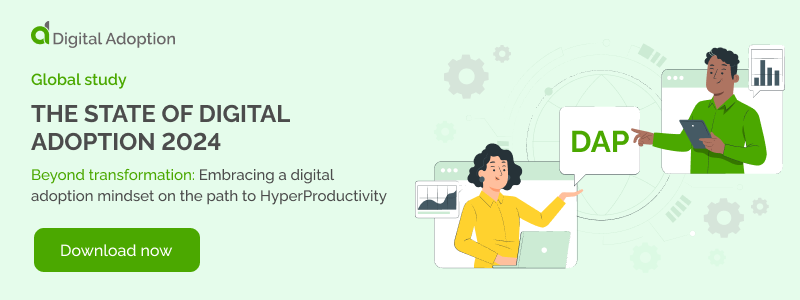Is a natural language processing (NLP) certification worth the investment?
In this post, we’ll examine the pros and cons of NLP certifications and courses, what they offer, what they don’t, and then we’ll look at a few of the top programs.
Natural Language Processing (NLP) Certifications: Pros and Cons
Natural language processing, or NLP, is a set of AI techniques that analyze and process language. It is a growing field and is used to develop a wide range of cutting-edge applications, such as automated customer service tools, voice user interfaces for search engines, and more.
Those interested in programming, AI, and language may find this field to be fascinating and lucrative. However, as with any computer science discipline, it requires in-depth study and research to become skilled.
But is a certification worth the investment of time and money?
Or is self-study a better option?
Here are a few reasons why certifications can be useful:
- Certifications and courses offer structured learning environments that can be very helpful for those interested in this field
- A well-structured course will cover the basics and offer information about fundamental NLP techniques, programming techniques, AI techniques, and more
- Courses from high-quality providers may also include advanced techniques that are being used in the industry
- Many provide hands-on projects that can give students an opportunity to build a portfolio
That being said, however, it is important to keep a few points in mind when evaluating potential courses:
- Not all courses are created equal, and not all will provide the same real-world value
- Some certifications carry more weight in the eyes of employers than others
- Certifications and courses take time and cost money, which may put some of them out of reach for certain individuals
With these in mind, it will be easier to evaluate courses and decide which one is right for you – or whether you should invest in one at all.
Should You Invest in an NLP Certification?
Here are a few questions to ask yourself when considering NLP certifications:
- What do I want to get out of the course? Every learner has a different goal, so it is crucial to identify ones own aims before investing in a course. This doesn’t just mean identifying NLP as a career track. It also means identifying, as much as possible, which programming language, which industry, and which type of NLP one is interested in. The more narrowly one can define these goals, the easier it will be to choose a course provider that meets those criteria.
- Does the course align with my career goals? Some courses offer very specific content, such as designing sentiment analysis programs, teaching basic Python techniques, training in TensorFlow, and so forth. It is therefore important to invest wisely and focus on the courses and content types that are most closely aligned with your interests and your career goals.
- What is my budget and time frame? Costs and time can be a concern for many. Although many courses are offered online today, making location irrelevant in many cases, it is still important to take budget and time into account. After all, investing in an irrelevant course that drains your funds will not help you find a job to repay those course fees.
- What is the track record of the education provider? When examining providers, it is important not just to look at the name of the provider, but also the track record of the individual teachers. Find out who those teachers are, what their specialties are, where they have worked, and so forth. Along with students testimonials, that information can tell you how valid and useful of course might be.
If a certification is affordable, it is generally better to consider investing in one. The industry insider perspectives and information, after all, may otherwise be unavailable to those interested in advancing their education and career.
A List of NLP Certifications and Courses
Here are a few examples of the types of NLP courses and certifications available in 2021:
- Coursera’s Natural Language Processing Specialization. Coursera’s NLP program covers specialized techniques including logistic rejection, sentiment analysis, Hidden Markov models, recurrent neural networks, and more. These are used for hands on projects such as machine translation, text summarization and chatbots.
- Udacity’s NLP nanodegree. Udacity offers “nano degrees,” or short vocational degrees that focus on computer science topics, including natural language processing. In their NLP course, they offer content focusing on a range of NLP techniques, deep learning techniques, and more. Students will understand the fundamentals of text process and, sentiment analysis, as well as more advanced techniques, such as recurrent neural networks.
- Udemy’s NLP courses. Udemy’s NLP courses Can vary in quality based on the instructors background and qualifications. While these courses May not Add much value on one’s resume, they can offer hands on practice and fairly deep insight into NLP. They can also be quite affordable when Udemy is offering a sale.
- Pluralsight’s NLP skills courses. Pluralsight Is a platform that offers access to a continually growing library of courses. For a flat rate, students can gain access to a wide range of courses, including NLP courses. Although these courses may not counts as certifications, they can offer real-world skills.
These are just a few examples of the courses and certifications available in 2021. Some of those listed here, such as Udacity, can offer certifications that enhanced ones resume. Others are focused solely on skill-building.
All of them, however, can be useful for the aspiring NLP practitioner, especially since the field changes so quickly and can carry quite a steep learning curve.
Conclusion
Digital transformation is rapidly shifting today’s business world, and AI-powered applications are becoming the norm. In the years ahead, fields such as NLP, artificial intelligence, intelligent automation, and deep learning will be in-demand, making this an excellent career choice. Those who want to work in NLP, therefore, may want to consider investing in the types of education options covered here.















